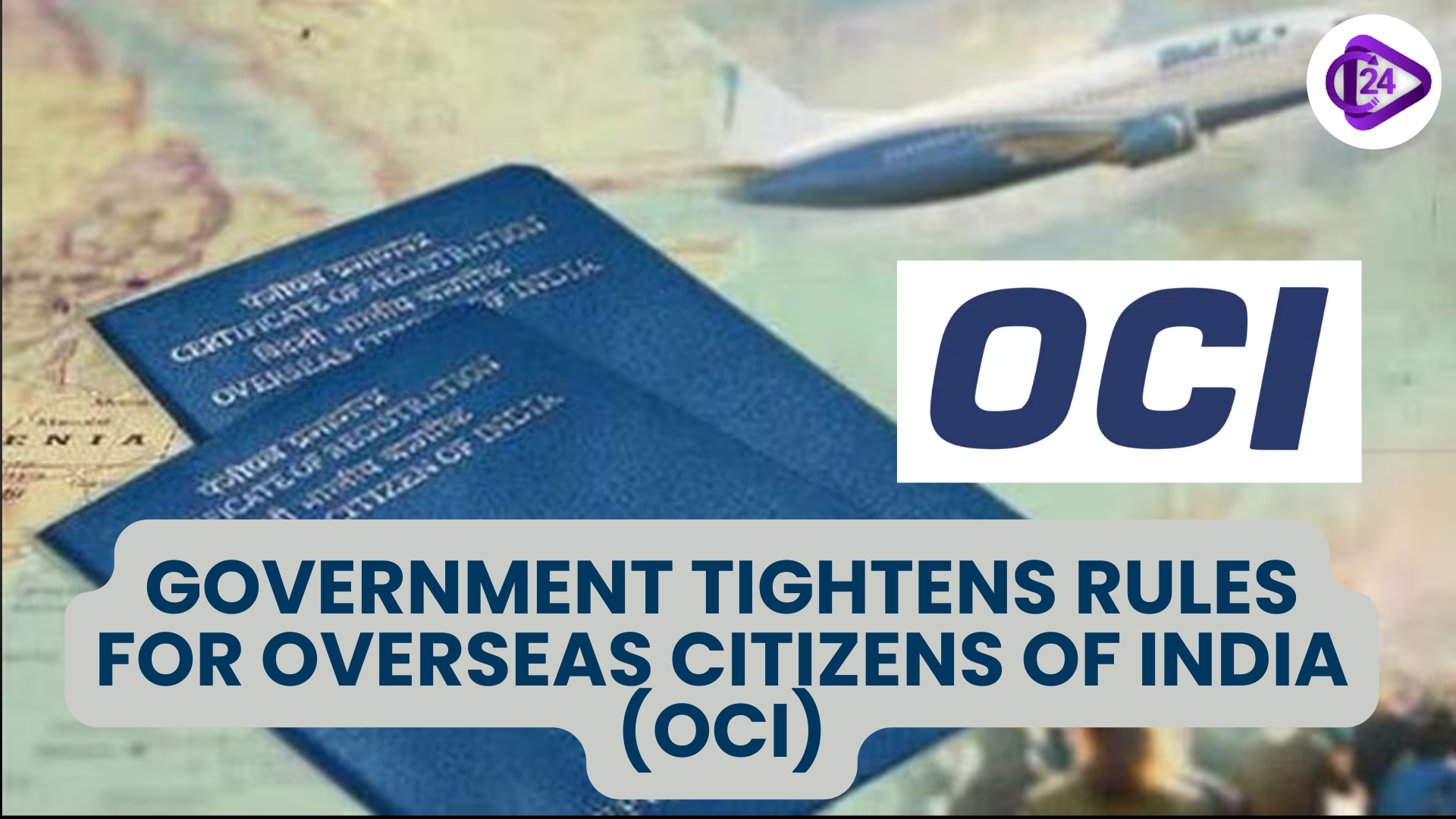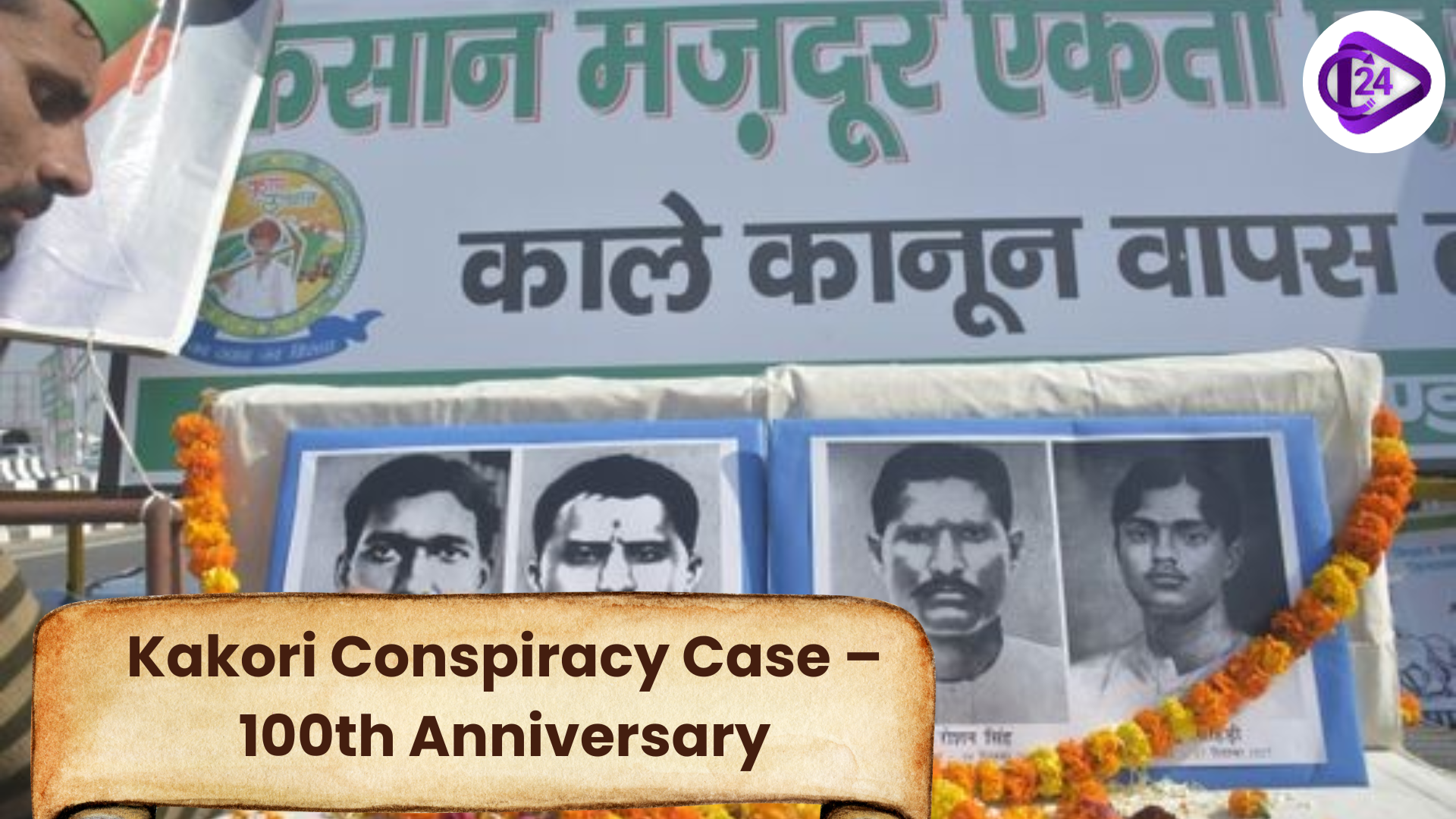
MoHA has come up with a tightened standard for Overseas Citizens of India (OCI) certificate holders. The new provisions will also have the consequence of canceling OCI registration when a person is sentenced to imprisonment of two years or more, or is charged-sheeted with offenses not less than 7 years which in case both such situations arise domestically or abroad. However, it requires the condition that the offence should be recognized under Indian law.
Context
-
The OCI scheme that was introduced in 2005 gives non-Indians of Indian origin, and their spouses, the right to reside, work, and travel freely in India without having the dual citizenship.
-
The OCI cardholder has many privileges available, which include the lifetime Multi-purpose visas, economic, educational entitlements, and equality to the Non-Residence Indian (NRI) in some areas.
Key Changes in OCI Rules
-
Criminal Offenses: The newly established modifications are to strengthen the lawful structure that governs the OCI status. In case any OCI holder gets convicted of a crime that is known to carry two or more years imprisonment term, or is charge-sheeted of an offense that is known to have a penalty of seven years or above, such a person's OCI system will be destroyed. This is regardless of whether the offense was committed in India or outside the country so long as the offense is recognizable in the Indian law.
-
Prevention of Misuse: This action is an attempt by the government to stop misuse of OCI status in the wake of cases where OCI holders engaged in criminal or anti-national acts. The government does not consider OCI to be a right that it owes, which is why it holds the privilege to revoke the status in case of the breaching of laws.
Brief description of the OCI Scheme
-
The OCI scheme enables people of Indian origin to avail some privileges, of which 40.68 lakh OCI cards were issued by Jan 2022. The card entitles:
-
Visa Privileges: Lifetime multiple entry, multi-purpose visa to visit India where a person would not have to apply newly every time.
-
Parental Parity: OCI The OCI holders have the rights as Non-Resident Indians (NRIs) regarding financial, economic and educational industries but they are not allowed to invest in agricultural or plantation lands in India or adopt Indian children abroad.
Eligibility Criteria
-
Foreign Nationals (except of Pakistan and Bangladesh) and who were citizens of India on or after 26 th January 1950, or descendants (children, grandchildren and great-grandchildren) of such a citizen.
-
Spouses: Foreign spouses of Indian citizens or already possessing OCI cards; the spouses must be married at least two years with a foreign citizen.
-
Exclusions: People serving in foreign military services or those retired cannot be granted OCI.
Key Limitations
-
Privileges to OCI card owners are quite high though there are a number of restraints:
-
No Dual Citizenship: OCI is not a dual citizenship per se since India does not permit people to have a dual nationality.
-
Political and Legislative Ineligible: OCI holders are not allowed to vote, constitutional offices (e.g. President, Vice-President), or be a member of a legislative assembly (e.g. Lok Sabha, Rajya Sabha or States Legislatures).
-
Public Employment: A holder of an OCI is not permitted to take an ordinary government job, this permission is expressly given by the Central Government.
-
Activity-Based Restrictions: Some activities such as research, missionary work and mountaineering will need special permission whereas there are restrictions in travel to protected areas.
Revocation of OCI
-
There are particular grounds on which registration as an OCI can be canceled as provided under the Citizenship Act, 1955 and the Citizenship Rules, 2009:
-
Fraud or Misrepresentation: Misrepresentation of information at the time of application.
-
Anti- India Acts: Commitment of an act that goes against Indian law like a crime or any activity against the security of the country.
Conclusion
The stricter regulation of rules on OCI registration serves to highlight the seriousness given by the government on preserving integrity of the OCI scheme without letting it be misused. By entangling the OCI status as one conditioned by compliance with the Indian law, the government allows only those who uphold the legal system of the country to have the privileges associated with the OCI status.



 India's Largest ‘Tinkering’ Event by Atal Innovation Mission Unites 10,000 Schools in Live National
India's Largest ‘Tinkering’ Event by Atal Innovation Mission Unites 10,000 Schools in Live National Govt Considers Proposal for ‘Equivalence’ in Creamy Layer Exclusion Across Various Sectors
Govt Considers Proposal for ‘Equivalence’ in Creamy Layer Exclusion Across Various Sectors Union Health Ministry Launches SHRESTH – State Health Regulatory Excellence Index
Union Health Ministry Launches SHRESTH – State Health Regulatory Excellence Index Punjab Deploys Baaj Akh Anti-Drone System
Punjab Deploys Baaj Akh Anti-Drone System PM Modi honours revolutionaries on Kakori Conspiracy Case on 100th Anniversary
PM Modi honours revolutionaries on Kakori Conspiracy Case on 100th Anniversary How Groundwater Contamination is Fuelling Chronic Illnesses
How Groundwater Contamination is Fuelling Chronic Illnesses Welfare of farmers highest priority, says Modi amid FTA negotiations with U.S.
Welfare of farmers highest priority, says Modi amid FTA negotiations with U.S. Sylheti Language Row: Identity, Politics, and Partition Legacy
Sylheti Language Row: Identity, Politics, and Partition Legacy Hand, Foot and Mouth Disease (HFMD) in Delhi Schools
Hand, Foot and Mouth Disease (HFMD) in Delhi Schools






